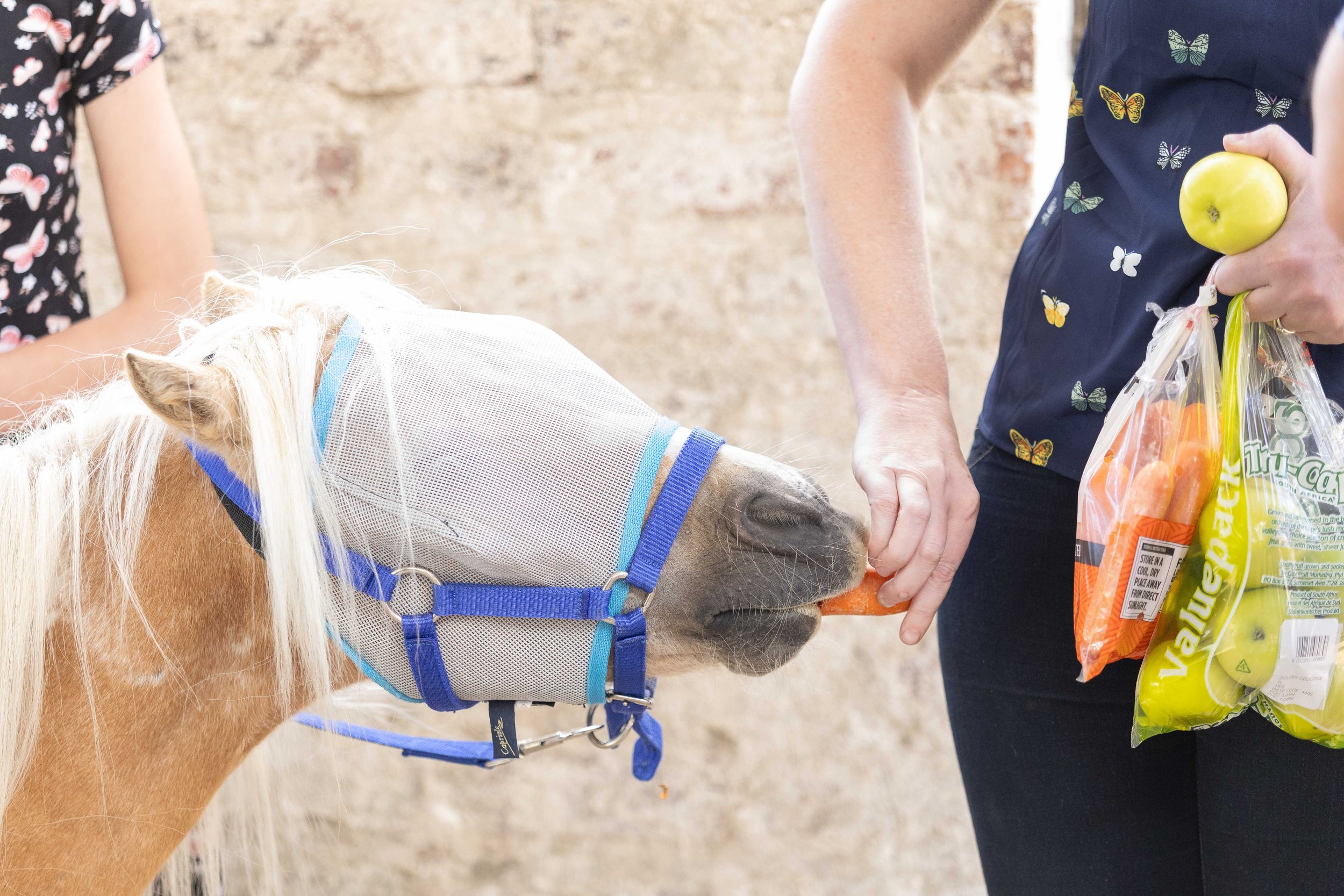
Equine Therapy
In the heart of the Cape Winelands, Elise offers the most serene therapeutic experience: equine therapy. With her two miniature horses: Rose and Falcon, she creates a welcoming healing environment to address psychological ailments of any kind. From simple de-stressing to more complex conditions like phobias or PTSD, Elise harnesses her expertise and combines it with the principles of equine therapy to address and remediate the issue(s). In Elise’s eyes, there is nothing more special than the unconditional, soothing love and stress relief of our animal companions, and she hopes to share this incredible, restorative experience with you, too.
Elise is also particularly passionate about family and couple’s therapy and offers relationship workshops that incorporate animal therapy - either with her miniature horses, Falcon and Rose, or with your own pets. With years of experience in this realm, including almost half a century of her own marriage, Elise can assist loved ones to reconnect and strengthen their relationships.
Find out more about Elise’s equine therapy via email or call using the button:









Animal Therapy
A self-confessed lover of all things four-legged and furry, Elise is also the mother of three toy Pomeranians: Cassie, Mimi and Jabba, as well as a Persian cat, Luna. Combining her passion for psychology with her love for animals, Elise also offers animal therapy with her pets. With their calm, soul-soothing demeanours, these pets are the perfect companions to assist with therapeutic treatment, all conducted in the tranquil surroundings of the Paarl Winelands. A highly trained and skilled clinical psychologist, Elise can develop tailored interventions that incorporate animal-assisted activities into treatment plans based on each individual's specific needs and goals.
What is animal therapy, and why is it effective?
Animal therapy, also known as animal-assisted therapy (AAT) or pet therapy, is a therapeutic approach that involves the use of animals to enhance the well-being and improve the overall quality of life of individuals. It is particularly effective in treating psychological conditions and has gained recognition as a complementary intervention in traditional therapy settings. Animal therapy can involve various animals, such as dogs, cats, horses, birds, rabbits, and even dolphins.
The primary goal of animal therapy is to promote emotional, cognitive, social, and physical benefits in individuals. Here are some of the benefits and uses of animal therapy in treating psychological conditions:
Emotional and Psychological Benefits: Animal therapy has been shown to reduce stress, anxiety, and depression by increasing the release of endorphins (feel-good hormones) and decreasing the production of stress hormones like cortisol. Interacting with animals can provide comfort, companionship, and unconditional love, which can improve mood and emotional well-being.
Social Interaction: Animals can serve as a bridge for social interaction, particularly for individuals who may have difficulties with human-to-human interactions. Pets can act as conversation starters and help individuals develop social skills, enhance empathy, and promote a sense of belonging and acceptance.
Physical Health Benefits: Animal therapy can have positive effects on physical health. For instance, engaging in activities like walking, grooming, or playing with animals can increase physical activity, improve motor skills, and enhance coordination. In addition, interaction with animals has been shown to lower blood pressure, reduce heart rate, and improve cardiovascular health.
Cognitive Stimulation: Animal therapy can stimulate cognitive functions by providing opportunities for learning, problem-solving, and memory enhancement. For example, petting and grooming an animal can improve sensory integration, attention, and focus. Animals can also be incorporated into therapeutic activities to target specific cognitive goals, such as following commands or engaging in structured tasks.
Treatment of Specific Psychological Conditions: Animal therapy has shown promise in treating various psychological conditions, including post-traumatic stress disorder (PTSD), autism spectrum disorder (ASD), attention deficit hyperactivity disorder (ADHD), and Alzheimer's disease. It can help reduce symptoms, enhance coping skills, and improve overall functioning in individuals with these conditions.
Overall, animal therapy offers a unique and valuable approach to enhancing psychological well-being and improving the quality of life for individuals with various psychological conditions. The presence of animals can provide a nurturing and supportive environment, fostering emotional connections and promoting therapeutic growth.
Find out more about Elise’s animal therapy via email or call using the button:









